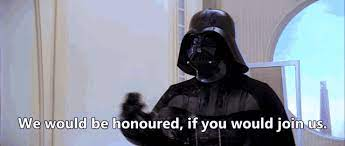It was one of Judaism's periodic public fasts, a sunup to sundown food deprivation with some enhancements of our assigned daily prayers. Torah is read in the morning and late afternoon, with a section of Prophets in the late afternoon as well. To fulfill this, a Minyan, or ten men, need to be in attendance. This being a summer Sunday, that was unlikely to assemble. In the morning it didn't, or so I am told, not being there myself. The announcement of the service at a well attended special event Saturday, including the desire of a prominent man to recite Kaddish memorializing the anniversary of his father's passing, did not generate sufficient interest. Around midday, I received a phone call and text message, neither of which I answered immediately. Could I join the minyan in the evening so that the Torah reading and Kaddish can proceed? If physically present, I always agree to help out. Enough invitations delivered personally generated more than enough men to attend. My synagogue had its scheduled service done in its entirety that evening. My friend memorialized his father in our traditional way.
Most of our congregational activities come from a few insiders broadcasting what's in the trough they constructed, asking for hungry snouts to sop up what's there. Some will, but fewer than will respond to a personal invitation, either to sample the contents or even to help build the trough and decide what goes in it. That doesn't happen at my shul, where comfort zones prevail. There's an element of paths of least resistance, or from my medical framework, I'd even say laziness. For a thriving enterprise, the broadcast announcements for participants are fine. For a declining one like ours, being acknowledged personally as somebody whose participation is valued makes all the difference, as we learned from yesterday's AM/PM gradient in being able to attain the obligatory minyan.
In another era, a pharmaceutical company needing practical advice in keeping a teetering product viable asked for user opinions, an invitation extended to me personally by the company's office representative. I provided mine, for which I received $400, which I donated to a small Tzedakah Fund run by somebody I had met. He sent me a “Thank You” note with something he had recently written, an article on how to enhance the meaning of our upcoming Passover Holiday. Danny, the agency head, posed his four questions:
- What am I good at?
- What do I like to do?
- Who can help?
- Why not?
For a congregation of scientists, that element of curiosity has largely remained dormant. If our President were to ask each committee chairperson to tell him who they purposely invited onto their committees in the last two years because they had knowledge or insight that would enhance the work of their committee, I think the null hypothesis would prevail. I was asked onto a nascent health committee to assess covid reopening based on my professional background. Or as my friend asked, what am I good at? Who can help? This time Me. But my sense is that we function by a corrupted version of the Pareto Principle where 20% do 80%, mostly by default.
Ironically, it wasn't always that way. There was never a lot of accountability, at least not at parity with my professional expectations, but there was more outreach at one time. We had an initiative with rewards to develop Torah reading capacity. My suggestion to revive this to the appropriate VP was offered a negatory in one minute. When your tush gets epoxied to the Comfort Zone seat, it's much easier to take the crew and see if they will do this year what they did last year. At least those are invitations, but never an outreach to what might challenge even the experienced reader a little more. Eventually that approach takes you to the senior citizen version of the USY Clique, where we seem to express ourselves a little more starkly each passing year. You never really determine what your pool of people really likes to do, has talent to contribute, and would be reticent to turn you down. But our Nominating Committees and Chairmen whose purpose is nominally to engage people, or even function as talent scouts, encloses themselves in their comfort zones. They make do. Trying to enhance seems too much trouble. There is no why not or what might be possible.
Many of us ran small professional practices where we had people who did not pay their bills. There's a literature on collections that any of us who did this know quite well. The highest yield to achieve payment is to have somebody call or meet the person in arrears and directly ask for the overdue fee. When my medical organizations embark on a project, they don't broadcast that they are forming a committee. They assign a chairman who seeks out the best composition for the project, based on skill and temperament. That's how you move ahead. That's how you imagine excellence as your destination. My congregation has not gone that route in a long time with results that reflect complacent officers who broadcast when they would do better inviting.


No comments:
Post a Comment